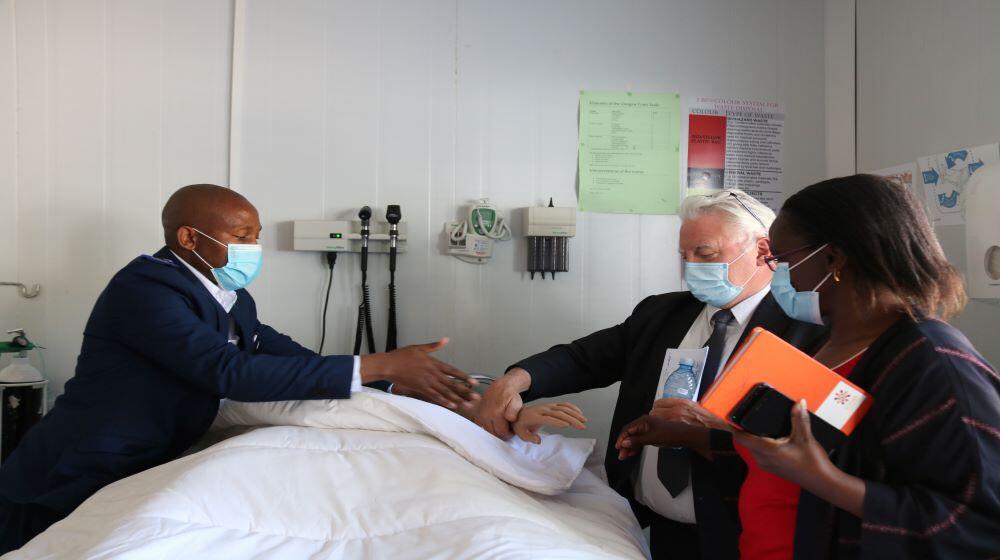The high rate of maternal mortality particularly among young girls aged between 15 -24 due to complications of unwanted pregnancies, which often result in them dropping out of school is of great concern to UNFPA, the United Nations Population Fund in Lesotho.
To this end, UNFPA in Lesotho aligns its work with three pillars one of them being prevention of unwanted pregnancies through contraception, that is, giving women an opportunity to decide when to become pregnant and spacing of their pregnancies. Safe motherhood is the second pillar while the third pillar is, midwifery, particularly skilled midwives who are able to perform lifesaving interventions and deal with complications.
As UNFPA Representative to Lesotho Dr Marc Derveeuw has often highlighted, ‘every pregnancy is at risk unless proven the opposite.’ He has always emphasized that dealing with complications is key. “We work towards ensuring a health system that can deal with complications, in emergency obstetric care, with basic lifesaving interventions that can be done by midwives,” he has said.
Based on the concern for the high maternal mortality (618/100 000 live births) the Representative has visited midwifery training institutions; the National Health Training Centre (NHTC) and Scott College of Nursing as well as Scott Hospital in Morija to establish facts on quality standards in teaching and clinical care in the preparation of midwives in Lesotho.
Some of the salient issues that came out during discussions have included the need for midwifery to be considered as a profession and the midwifery curriculum. UNFPA has supported the Government of Lesotho through the Ministry of Health to change the midwifery curriculum. With the new curriculum endorsed by stakeholders, expected to kick start this year, midwifery training has been upgraded from a 12 months’ diploma course to an 18 months post basic diploma. The institutions’ authorities have expressed that they embrace the new curriculum and have hope that it will contribute towards reduction of maternal mortality.
For UNFPA, Midwives play an important role in saving lives. According to the most recent State of the World’s Midwifery report, well-trained midwives could help avert roughly two thirds of all maternal and new-born deaths globally and also deliver 87 per cent of all essential sexual, reproductive, maternal and new-born health services. UNFPA therefore works towards building a competent, well-trained and well-supported midwifery workforce focusing on, among others, strengthening competency-based midwifery training and developing strong regulatory mechanisms to ensure quality services.


